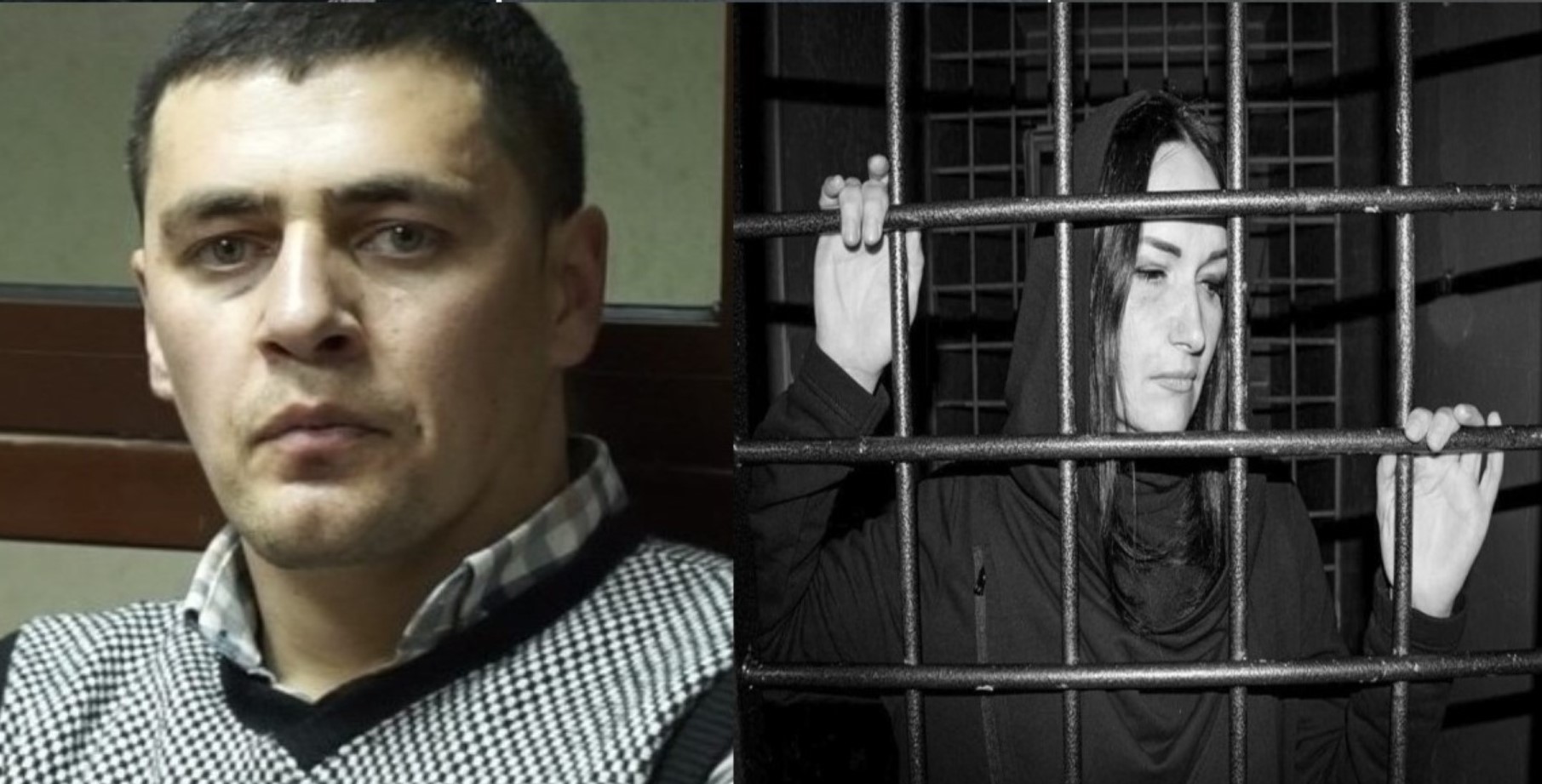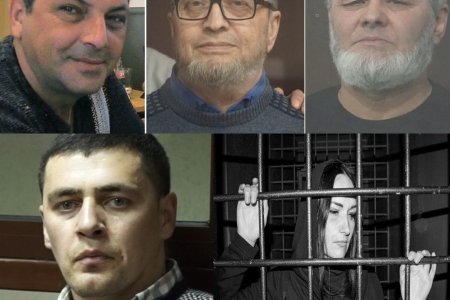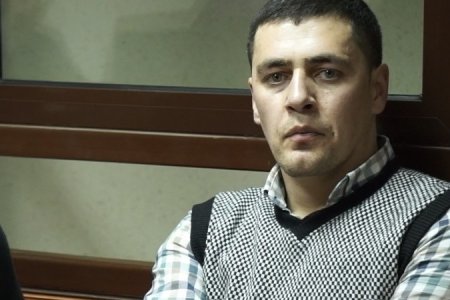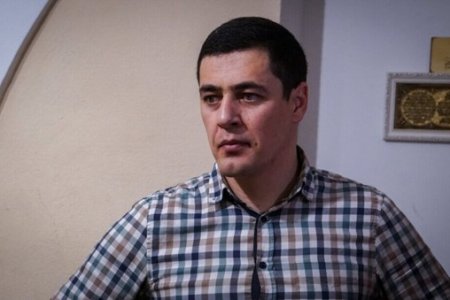
At least 150 Ukrainian political prisoners from occupied Crimea, the vast majority of whom are Crimean Tatars, are imprisoned in Russian prisons, often thousands of kilometres from their families and home. There are no realistic options currently on the table for securing their release, and life in Russia’s appalling penal institutions has become even harder since Russia’s full-scale invasion of Ukraine. However, the war has opened up one important mechanism that would enable diplomatic representatives of other countries to ensure vital contact with these Ukrainian victims of political or religious persecution.
Lutfiye Zudiyeva, one of the Coordinators of the Crimean Solidarity human rights initiative, recently spoke of the need, given the present conditions, to develop ways of ensuring the protection of Ukrainian political prisoners held in Russian prisons. One critical mechanism would depend on the engagement of diplomatic representatives from other countries which uphold rule of law and fundamental human rights and have long called for the release of Russia’s Crimean political prisoners.
Russia’s criminal procedure code specifically envisages contact between prisoners and the diplomatic representative offices and consular departments of their country in the Russian Federation. Although Russia has, since 2014, made it next to impossible for Crimeans living under occupation to not also take on Russian citizenship, they remain Ukrainian citizens. Although the political prisoners’ Russian passports are one of Russia’s excuses for blocking their release as part of an exchange of prisoners, the Russian authorities did allow the Ukrainian Consul in Rostov (Russia) to visit political prisoners awaiting trial or appeals against sentences. Such contact was enormously important, especially given the shocking conditions in such institutions and the prison authorities’ failure to provide critically needed healthcare to gravely ill political prisoners. Ukraine was forced to sever all diplomatic relations immediately after Russia’s full-scale invasion on 24 February 2022, and to remove all Ukrainian diplomats from Russian territory.
Importantly, the same criminal procedure legislation envisages situations where a prisoner’s country does not have diplomatic representatives in the Russian Federation. In those cases, it says, the prisoners are entitled to such contact “with the representative offices or consular institutions of countries which have taken it upon themselves to defend [the prisoner’s] interests, or with inter-state bodies engaged in the defence of such prisoners”.
Diplomats from the EU or specific EU states, as well as from the UK, USA, Canada and Japan, have on many occasions attended hearings in Russia’s ‘trials’ of Ukrainian political prisoners. Their presence sent a clear message to Moscow that their countries condemned such political persecution.
Their involvement in visiting any of Russia’s Crimean Tatar or other Ukrainian political prisoners would send the same message to Moscow, while providing invaluable support to the prisoners themselves. In many cases, such as the imprisonment of Crimean Tatar civic journalist Amet Suleimanov, visits from foreign diplomats could spell the difference between life and death. Suleimanov has life-threatening medical conditions which mean he should never have been placed in detention, let alone sent to one of Russia’s worst penal institutions (the Vladimir Central Prison). His life is in immediate danger, yet the prison authorities are even refusing to pass on vitally needed medication obtained by his family. It is very likely that scrutiny from diplomatic representatives would indicate to the personnel that such behaviour is being noted and could have consequences.
Lutfiye Zudiyeva also suggests that representatives of the Red Cross could take Crimean political prisoners under their care. She points out that they have fairly broad powers and opportunities. They could at least exert pressure on the Russian authorities to ensure that political prisoners receive access to proper doctors and could monitor their treatment.
She stresses also how important it is that foreign diplomats attend at least the final hearings in Russia’s politically motivated trials and provide information about such persecution via diplomatic channels. As well as demonstrating to Moscow that such ‘trails’ are recognized as politically motivated, such attendance should also show foreign media that these are cases that they should be following.
Russia’s lawlessness has real victims, many of whose lives or health are in direct danger. There are details below about some of the political prisoners in most urgent need of support. Please help them by ensuring that the foreign ministries of your country receive full information and are asked to react.
Amet Suleimanov
The Crimean Solidarity civic journalist has a grave heart condition which, even according to Russia’s own legislation, should have precluded any imprisonment. He is in immediate and very real danger of dying in Russian captivity. Details here:
Russia refuses critically ill Crimean Tatar political prisoner vital heart medication
Address
600020 Russian Federation, Vladimir, Bolshaya Nizhegorodskaya St. No. 67, Prison No. 2,
Suleimanov, Amet Refatovych, b. 1984
Iryna Danilovich
The nurse and civic journalist, who wrote about political trials, as well as medical violations in occupied Crimea, was abducted by the FSB in April 2021 and tortured, in order to try to get her to ‘confess’ to non-existent contacts with foreign organizations and ‘state treason’. When such efforts failed, they fabricated insane charges, claiming that she had carried ‘explosives’ (to and from her night shift at a clinic) in a glasses case. She was sentenced to seven years, with Russia’s brutal reprisals against her for her courageous civic position also demonstrated in the refusal to provide her with urgently needed medical treatment for an agonizing ear inflammation. This has led to partial deafness and may have caused a stroke.
See:
Address
357910 Russian Federation, Pochtovaya St, No. 78, Stavropol Krai, Zelenokumsk, Women’s Prison Colony No. 7
Danilovich, Iryna Bronislavovna, b. 1979
See also:
Russia has killed two Ukrainian political prisoners and is endangering at least 21 others


